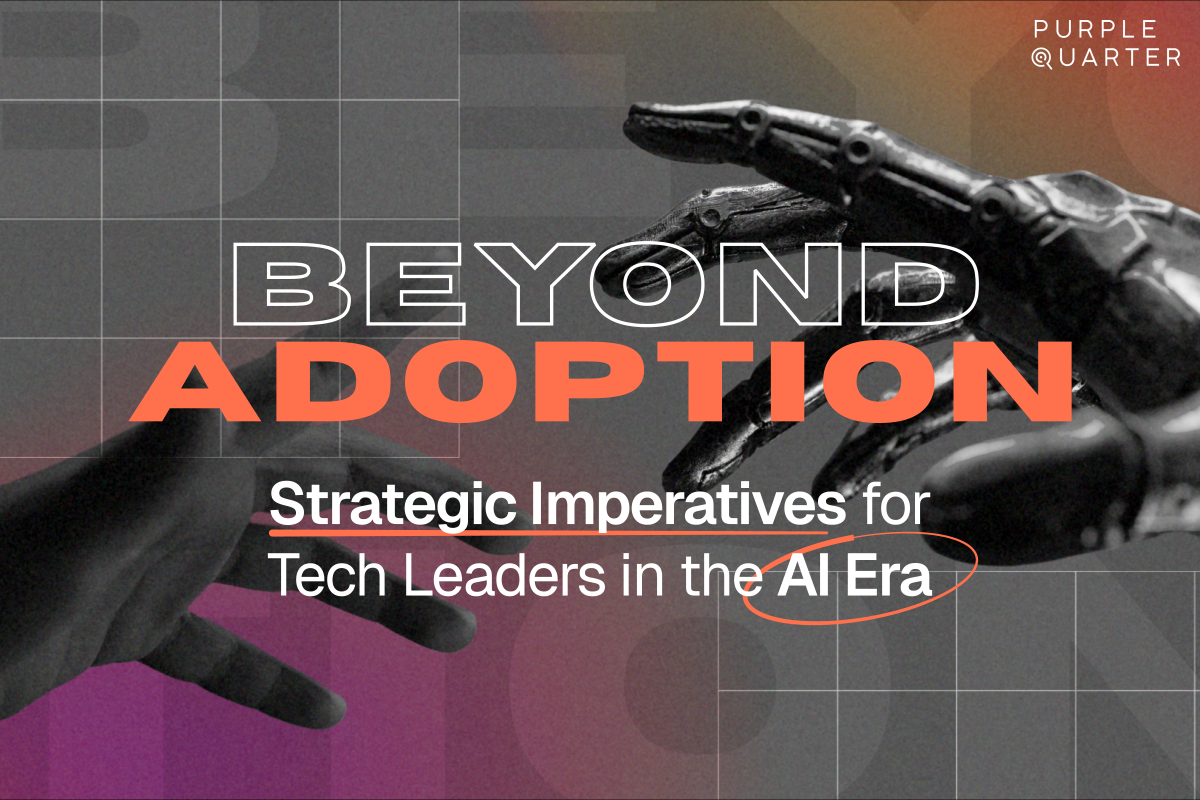
At Purple Quarter, we assess, hire and consult on tech leadership every day across early-stage to unicorns to mature tech product firms. In the past 18 months, one pattern has emerged consistently: younger talent is forging mainstream leadership conversations, albeit with a differing lens. Call it a generational shift, but Gen Z leaders are triggering measurable changes in how leadership roles are defined, designed, and delivered.
Here’s a closer look at the data and case experience on the trend.
Gen Z’s early move
According to LinkedIn’s Global Talent Trends report (2024), Gen Z representation in leadership and managerial roles has grown by 80% since 2020, especially in tech-driven firms with under 500 employees. In sectors like SaaS, fintech, and D2C, we’ve seen candidates between 25 and 30 leading product, engineering, and growth teams, often without the “10+ years of experience” mandate. And it’s not just about age; the criterion by which leadership is being assessed is shifting.
Renewed Leadership Lens: Skills Over Seniority
Historically, CTO or Head of Product mandates would centre on tenure, team size managed, and delivery milestones. But now, companies, especially founder-led ones, are prioritizing adaptability, clarity of thought, and the ability to build in ambiguity over rigid experience brackets. We’ve seen hiring panels favour candidates who:
Can operate across product and engineering without hiding behind silos
Communicate context, not just tasks
Use data and tooling fluently (including AI augmentation) to make agile decisions
In certain mandates, we observed comparatively less experienced candidates edge over senior contenders with sharper and aware leadership mindset, even if their body of work fell short. This trend reflects what we classify as high-impact tech leadership hiring- where clarity, velocity, and cross-functional command outweigh traditional pedigree.
Gen Z is not rejecting leadership. They’re redesigning it.
While the prevailing narrative has us believe that Gen Z doesn’t want to lead, avoid responsibility, unwilling to manage but that’s proving inaccurate. What they’re rejecting is outdated leadership and roles built around vague authority, politics, or performative visibility.
In our assessments, we’ve consistently found that Gen Z candidates care deeply about leading, but on contemporary terms; they want accountability, not control. Impact, not illusion. They expect:
Clarity of scope
Real-time feedback loops
Autonomy supported by mentorship
Tools that reduce busywork, not surveillance
This shows up in interviews. When asked about leadership aspirations, most Gen Z candidates skip over headcount or hierarchy. They stress on velocity, influence, and assess their ability to succeed in the role or left to fight legacy decisions.
This behaviour is symptomatic of broader organizational leadership trends, where outcomes take precedence over optics, and leadership is contextual, not ceremonial.
Where AI fits into the Gen Z toolkit
While companies are still debating AI’s role in leadership, Gen Z is already capitalising on it. To them, AI is not a threat or a differentiator; it’s just a baseline efficiency layer now. And this AI fluency is shaping Gen Z leadership.
On a similar note, several companies are swiftly adapting to this shift and redefining leadership roles with sharper scopes and building alternative tracks that allow for technical, people, or hybrid growth. They’re updating interview panels to test real-world problem solving, led by knowledge of how to leverage the latest tools, not just relying on mundane resume posturing.
For companies looking to hire AI leader for startups, this AI-native leadership fluency is no longer optional; it’s part of the new baseline.
What this means for hiring
Companies serious about future-proofing their leadership bench need to update how they assess, design, and support these roles.
This doesn’t entail dropping structure but evolving it consciously:
Creating space for early leaders who show clarity, not just credentials
Supporting AI fluency as a standard leadership competency
Investing in mentorship frameworks that don’t just replicate the old model
Allowing different leadership paths- managerial, technical, strategic, so leadership isn’t one-size-fits-all
At Purple Quarter, we’re already adapting our evaluation frameworks, aligning with founder expectations, and helping define mandates that account for this generational shift. The goal is not to lower the bar. It’s to raise it differently.
Final Thoughts
Tech leadership is aggressively changing and Gen Z or AI aren’t the only flagbearers, but it's the immediate need for speed, complexity, and scale of modern dynamic product teams that traditional models can no longer serve.
Gen Z is simply responding to this reality faster. They bring with them a native fluency in digital tools, a higher demand for meaning, and an instinct for clarity over hierarchical theatrics. The question is no longer whether they can or will lead; they already are. The pertinent question is whether we’re building the right systems to let them succeed.
Purple Quarter is a top CTO search firm working with global technology companies to identify and place exceptional tech leaders across product, engineering, and data.
For more information, please reach out to the Marketing Team.

.png)
